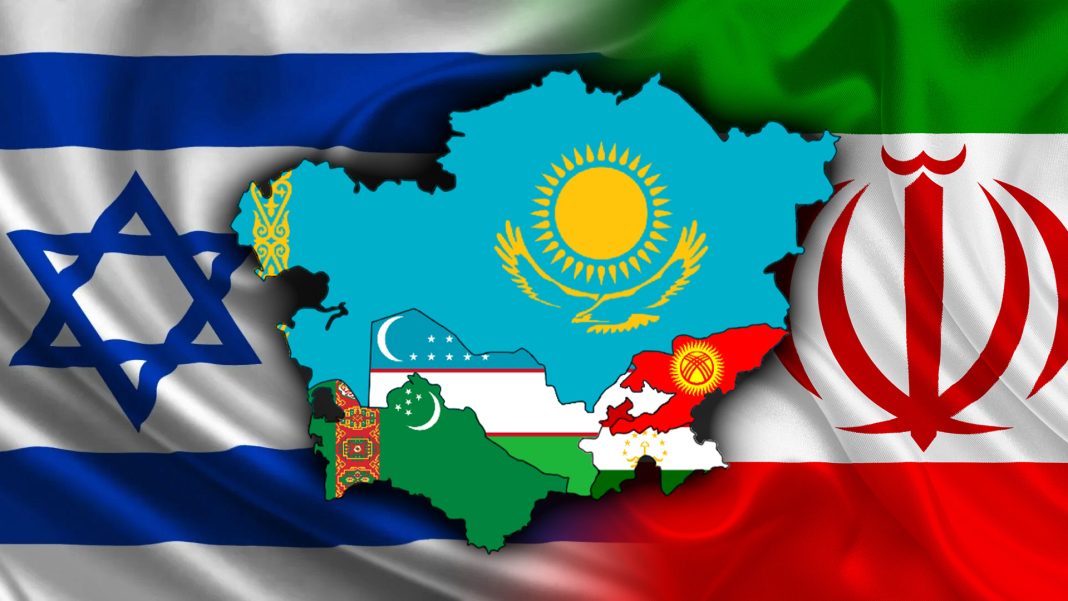The Implications of the Israel-Iran War for Central Asia
In a dramatic escalation of tensions in the Middle East, Iran launched a missile attack on Israel on October 1, 2024, marking a significant turning point in the long-standing conflict between these two nations. This event, dubbed “Sadiq-2,” ordered by Major General Hossein Salami of Iran’s Islamic Revolutionary Guard Corps (IRGC), has not only intensified hostilities in the region but also sent shockwaves across Central Asia. As countries in this strategically important region grapple with the fallout, the implications for their security, economic stability, and diplomatic relations are profound.
A Complex Geopolitical Landscape
The Middle East has long been a battleground for geopolitical rivalries, particularly between Israel and Iran. The roots of this enmity run deep, stemming from ideological, political, and historical conflicts that have evolved over decades. Since the 1979 Iranian Revolution, Iran has positioned itself as a staunch opponent of Israel, supporting various militant groups across the region, including Hezbollah and Hamas. This ongoing conflict has now taken on new dimensions, with Central Asian nations finding themselves at a crossroads.
Central Asian countries, including Kazakhstan, Uzbekistan, and Turkmenistan, have traditionally maintained a neutral stance in the Iran-Israel conflict. However, the recent missile strikes have forced these nations to reconsider their positions as they navigate a complex web of security threats and shifting alliances. The stakes are high, as any misstep could jeopardize their influence and stability.
Historical Context: Iran-Israel Relations
To understand the current situation, it’s essential to look at the historical context of Iran-Israel relations. The animosity between these two nations has been fueled by a series of events, including the 1982 Lebanon War, Iran’s nuclear ambitions, and regional proxy wars. Each of these factors has contributed to a climate of distrust and hostility, culminating in the recent missile strikes that signal a potential shift towards more direct military confrontation.
Central Asia’s Strategic Dilemma
As tensions escalate, Central Asian countries face a strategic dilemma. On one hand, they have economic ties with Iran, bolstered by projects like the International North-South Transport Corridor and the Kazakhstan-Turkmenistan-Iran railway. On the other hand, they have developed military and security cooperation with Israel, particularly in counterterrorism efforts. This dual engagement complicates their diplomatic landscape, as they must balance their relationships with both regional powers while safeguarding their national interests.
Realignment of Alliances
The ongoing conflict may compel Central Asian nations to reassess their alliances. As Iran asserts itself as a regional power, these countries might feel pressured to align more closely with Western powers, particularly the U.S., to counter potential Iranian expansionism. This could lead to increased military cooperation and intelligence-sharing agreements, reshaping the geopolitical landscape of Central Asia.
Emerging Security Frameworks
In response to rising tensions, Central Asian countries may seek to establish new security frameworks. The Collective Security Treaty Organization (CSTO), led by Russia, might need to reassess its security needs as external threats from Iran or Afghanistan increase. Concerns about the Taliban’s ties with Iran could further destabilize the region, prompting Central Asian nations to prioritize border security and counterterrorism initiatives.
Economic Implications: Disruption of Trade Routes
The Iran-Israel conflict also poses significant economic challenges for Central Asia. The region relies heavily on trade routes that connect it to global markets, and any disruption could have dire consequences. The Belt and Road Initiative (BRI), a major economic project aimed at enhancing connectivity across Asia, could face significant hurdles as regional security challenges mount. Central Asian countries must navigate these complexities to protect their economic interests while fostering stability.
The Road Ahead: Balancing Act
As the situation unfolds, Central Asian countries are likely to adopt a diplomatic approach, striving to maintain neutrality while engaging with both Western and Eastern powers. Active participation in multilateral forums may provide a platform for these nations to address their security concerns and promote regional stability.
In conclusion, the implications of the Israel-Iran conflict extend far beyond the immediate region, affecting the geopolitical dynamics of Central Asia. As countries in this vital area grapple with the fallout, their responses will shape not only their own futures but also the broader landscape of international relations. The path forward will require careful navigation of alliances, security frameworks, and economic strategies to ensure stability in an increasingly complex world.



